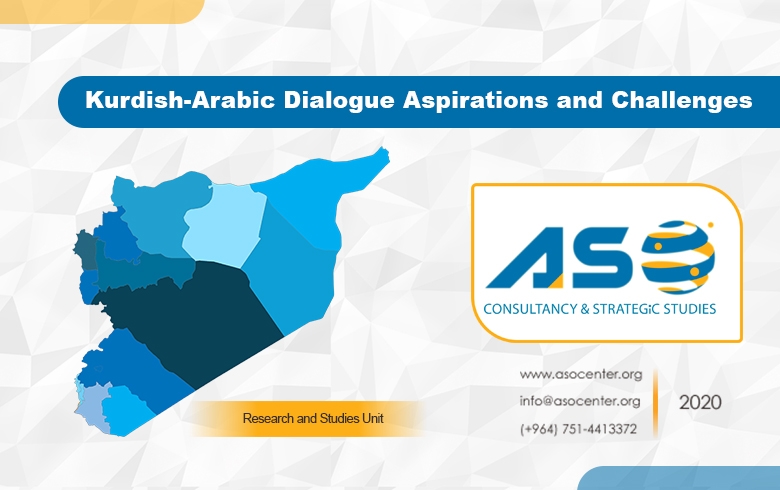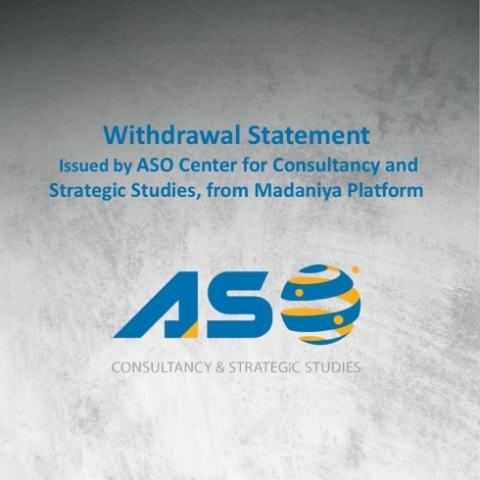

Kurdish-Arabic Dialogue: Aspirations and Challenges
2020-03-22
Introduction:
The current conclusions of the Syrian scene and the decisive and critical historical phase, require the necessity for the intellectual and political categories of all their active varieties and institutions to rise, with greater awareness and national ownership. As well as, to start from an intellectual, political and social component that surpasses the visions and stereotypes dominated by negativity and rivalry. In addition to highlighting common factors between all Syrian components and working to reinforce them, with respect to working to reduce differences and try to overcome them.
Despite the existence of underlying conflicts with historical dimensions, that possess national, religious or tribal features, which in their turn might have their substantive justifications at many levels, however, in the current stage the need requires to be met more than ever, also despite many policies and procedures followed by some ruling regimes in particular periods of time, which have led to the primacy of ethnicism or sectarianism over nationalism, as a reaction to the followed practices and policies. Especially, after it has risen, increased and became more complex, in the stages following the peaceful period of the Syrian revolution, which turned into open conflicts, manifested by violence and feuds. After it was supported and politicized by international and regional parties, to dismantle the social texture and risk civil peace between the Syrian components in general, and the Arabic and Kurdish components in particular.
Historical facts have proven the futility of solutions based on disregard, ostracism, exclusion and marginalization, and neither persecution nor suppression have worked. Likewise, all means that adopted violence as an approach to deprivation of rights and silence the voices calling for freedom. As it is inevitable and there is no alternative to dialogue as a necessity, also as a useful tool for restoring bridges of confidence and finding a state of understanding and rapprochement through an exchange of opinions and views and openness to the other to come out with consensual forms to solve outstanding and pending misunderstandings and differences.
Table of Contents:
Index:
Introduction:
Executive Summary:
Kurdish-Arabic Relationship Before the Syrian Revolution:
Kurdish-Arabic Dialogue Impediments:
Syrian Revolution and its Impact on the Kurdish-Arabic Dialogue:
Media and Hate Speech and its Impact on the Kurdish-Arabic Dialogue:
Conclusions and Recommendations:
In the Societal Field:
In the Political Field:
In the Media Field:
References:
To read the full report, click on download.
Download

